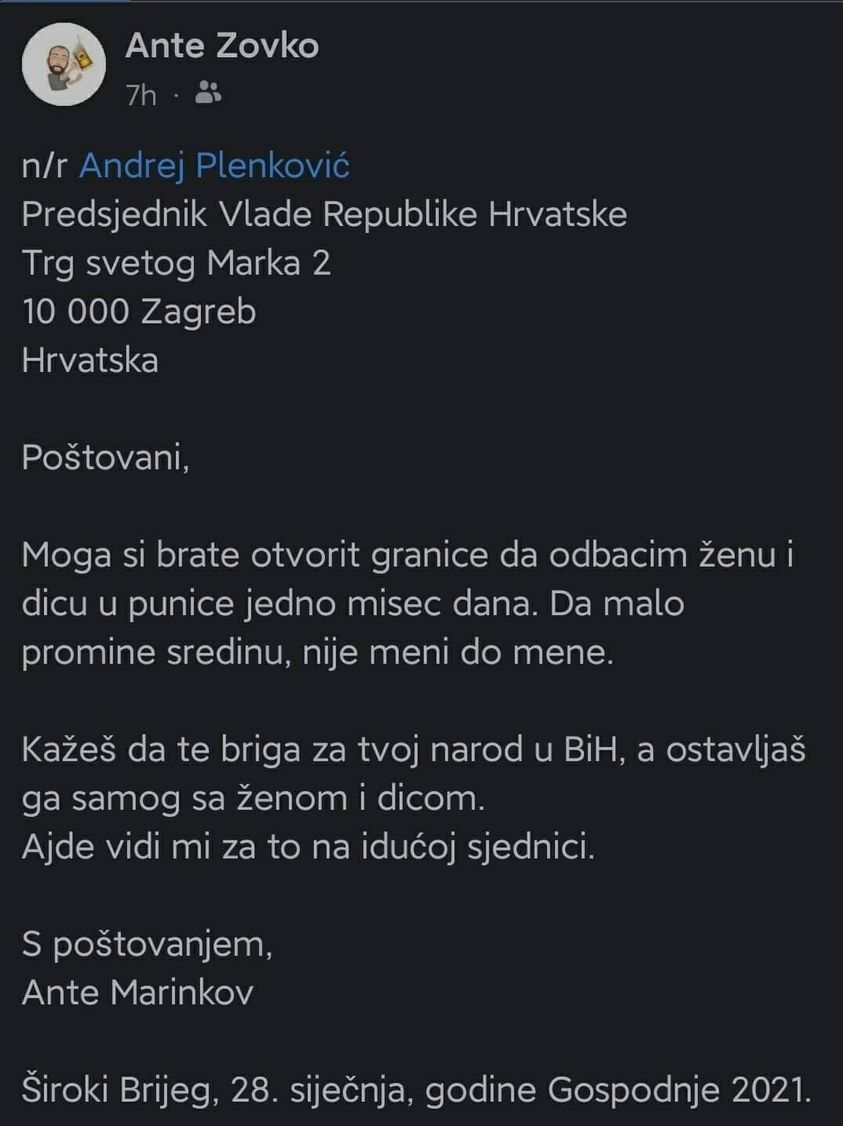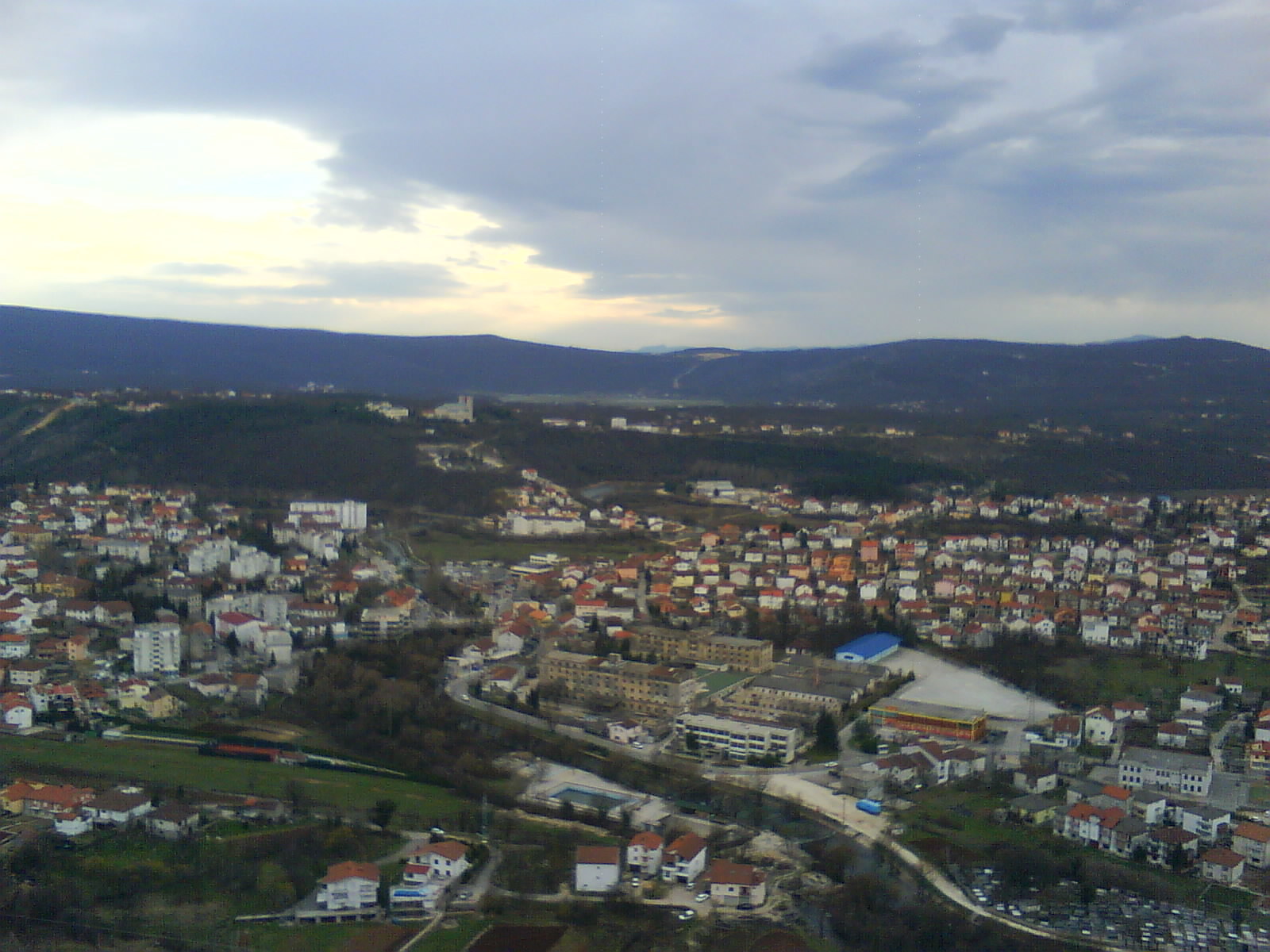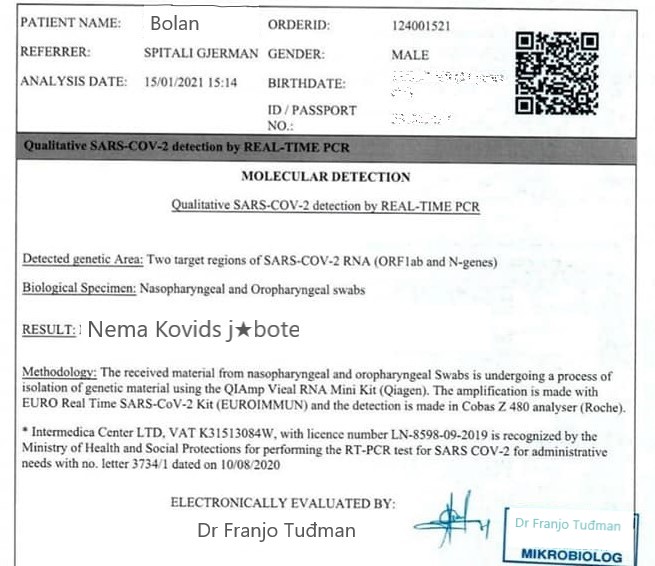Research Shows Tourists More Afraid of Border Regimes than Coronavirus
March 10, 2021 – The results of the Croatian National Tourist Board's Brand Tracking survey for 2020 represent key obstacles related to foreign travel, showing tourists more afraid of border regimes than coronavirus infections.
As Jutarnji list reports, Croatia may have strengthened its national tourism brand in the last five years. However, the Brand Tracking survey of the Croatian National Tourist Board (CNTB) for 2020 suggests that children's diseases still plague us and that we should seriously consider a campaign to promote Croatia on world markets.
Namely, in the context of the coronavirus pandemic, the research showed that the key obstacle related to foreign travel is "fear of various formal protection measures that could be established before or during the trip." In contrast, passengers' fear of infection at the holiday destination comes only later.
'Safe stay in Croatia' not enough?
This is a bit in contrast to the main messages coming from the Ministry of Tourism and Sports and the Croatian National Tourist Board, which continuously point out that the most important message for tourists this year is the message of safety, to which Croatia's primary campaign in the preseason is adjusted.
This refers to, of course, the project "Safe stay in Croatia," which should give certificates suggesting to tourists that the facility in which they stay is hygienic and safe. Regarding that, unofficial messages have been coming from the tourism sector for some time, noting that this will not be enough to organize a successful season. As the research now shows, it is necessary to work more actively on removing barriers to travel.
The CNTB explains that the fear of infection has less impact on travel intention because tourists generally believe that their behavior can prevent or reduce the possibility of infection. At the same time, nobody can influence the various epidemiological measures that counties introduce.
"Even though the fear of infection does not affect tourists' intentions as much as possible travel restrictions, some potential tourists, especially the elderly, have expressed this fear. We believe that it is crucial to promote Croatia as a safe environment where it is possible to spend a quality holiday," said the CNTB director Kristjan Staničić.
Competing destinations Italy and Spain perceived more accessible than Croatia
The research also confirmed that Croatia had not moved away from the perception of a "sun and sea destination." However, it has been noted that Croatia has made progress in city break vacations, as well as nature-related vacations.
Nevertheless, tourists from geographically closer and more easily accessible markets (accessible by car) still gravitate to Croatia the most. In areas other than our traditional destinations, "there is room for progress in recognizing and promoting key distinctive values," despite the generous strategic marketing plan we funded through the 2014-2020 period.
Besides, it turned out that Croatia still needs to do a lot to understand better the advantages of the Croatian tourist offer concerning the competition and that it is still insufficiently perceived as a destination for quality accommodation. It is also interesting how Spain and Italy, as Croatia's competing destinations, are perceived as more easily accessible compared to Croatia.
On the other hand, it was noticed that Croatia's image, concerning the competition, is based on "value for money." Over the years, Croatia has managed to position itself as a destination for young people, a segment where only Spain is better perceived than us.
"Young people traveling through Croatia combine different experiences and motives – city tourism, entertainment, festivals, gastronomy, sun, sea, visits to natural attractions. Some young tourists are attracted to party and festival destinations such as Novalja, Hvar, or Split, with a desirable offer," Staničić points out.
The CNTB's official page still has old figures on the infection rate
Asked by Jutarnji list journalists to explain why Croatia still has a problem of moving away from the perception of "sun and sea "destination, Staničić answered that it is dominant Croatia's tourist product and that its role will continue to be extremely important.
"The sun and the sea ensure our recognition with potential tourists. However, intensive work will continue on the establishment of other tourist products," explains Staničić.
Although the "Safe stay in Croatia "website should provide tourists with the latest information on the epidemiological situation, on Tuesday, it had the old report on the 14-day case rate, which was last updated on March 1.
As Jutarnji list unofficially finds out, the Croatian Institute for Public Health caused the lack of new data because they did not submit the table with the numbers on time.
For the latest travel info, bookmark our main travel info article, which is updated daily.
Read the Croatian Travel Update in your language - now available in 24 languages.
Hercegovac Begs Cro PM 'Open Borders So I Can Send My Wife To Her Mother'
January 29, 2021 – Lockdown is apparently taking a toll on one Hercegovac. The man from Široki Brijeg wrote to Croatian Prime Minister Andrej Plenković and begged him to reopen the borders between Croatia and Herzegovina so he could eject his wife from the family home for a month and send her to his mother-in-law's
The message from Hercegovac Ante Zovko (Ante Marinkov) was reposted on the Facebook page Imocki crnjaci where it picked up some 3 thousand likes in less than 6 hours.
The town, Široki Brijeg, where this particular Hercegovac (a man from Herzegovina) lives is just 35 kilometres from the border with Croatia. Lots of Croatians live in this area, including this Hercegovac, his wife and his child. But not, it would seem, his wife's mother, who apparently lives in Croatia. Široki Brijeg in Herzegovina, around 35 kilometres across the border from Croatia © Anto (talk)
Široki Brijeg in Herzegovina, around 35 kilometres across the border from Croatia © Anto (talk)
The Hercegovac's reason for wishing to eject his wife and child for a month was to change up the atmosphere for a time. One presumes he was not being entirely serious with his request.
The Hercegovac is not the first man to seemingly reach the end of his tether while restricted to staying in the family home. In April 2020, after just one month of being housebound, a man from a village near Osijek in Slavonia left his wife in the family home and went to live nearby in a tent.
Speaking anonymously at the time, the man's neighbour told the local SiB.hr news portal the couple have been happily married for 30 years. But, it seems the pressure of being around each other so closely during the lockdown was too much even for their strong union.
The neighbour was happy to report that since his friend pitched his tent in the nearby locale, relations between the man and his wife had actually returned to their usual levels of warmth and friendliness. The wife even came regularly to visit her husband in his tent. © John Waring
© John Waring
"My neighbour has been in his tent for a few days now,” he told the portal back in April. “He puts up a table and chairs in front. Occasionally our other neighbour comes over to drink some rakija (with him). I visited him too.”
The neighbour said his friend had quit the family home due to boredom more than anything else. Even after being happily married for 30 years, being around each other 24 hours a day was apparently just too much.
Perhaps in this more chivalrous response from the Slavonian man, Hercegovac Ante Marinkov could take some inspiration? After all, it's surely easier if one person departs from his family home in order to change the atmosphere than if two are forced to leave. Ante should find a nice spot in the fields nearby – not too close – and simply pitch up a tent. Problem solved! If he's lucky, his wife might come to visit bringing rakija.
45 People With Fake PCR Tests Detained At Croatian Border In One Weekend
January 19, 2021 – 45 people tried to enter Croatia with fake PCR tests this weekend alone. They were caught by Croatian police, detained at the border and reported to the State's Attorney office. If found guilty, each faces a maximum penalty of three years in prison
Some 45 people tried to enter Croatia through the borders of one county with fake PCR tests this past weekend.
Travel from Bosnia and Herzegovina into Croatia currently requires the production of a negative PCR test or a doctor's certificate proving you have successfully passed through a COVID-19 infection in recent months.
Since the ban on entering Croatia from Bosnia and Herzegovina without a negative PCR test was introduced, fake PCR tests are increasingly being forged. Border police and customs officers at crossings in Brod-Posavina County have met many people trying to cross the border with fake PCR tests. But, this weekend a new record number of forged tests were found on the county's border crossings.
According to a statement from the Brod-Posavina Police Department, as many as 45 attempts to enter the country with fake PCR tests were discovered on Saturday and Sunday.
"At the Stara Gradiška border crossing, police officers determined that 43 persons, mostly citizens of Bosnia and Herzegovina, presented fake PCR tests issued in BiH at the border control. At the Slavonski Brod border crossing, two people were registered who gave forged tests," the Brod-Posavina police reported.
Police officers file criminal charges against all those suspected of committing the criminal offence of forgery of a document with the Municipal State Attorney's Office in Slavonski Brod. If found guilty, such persons face up to three years in prison.
The overall number of people detained on Croatia's border with fake PCR tests this weekend could actually be higher - the figures of 45 persons detained with fake PCR tests were released by the police of just one county in Croatia - Brod-Posavina County. A further eight Croatian counties exist along the border with Bosnia and Herzegovina. Each has border crossings between the two countries.
New Border Rules for Croatia from Countries with New Covid Strains
January 13, 2021 - The Croatian Civil Protection Headquarters announced new border rules for Croatia for travelers coming from countries with the new Covid strains, specifically the United Kingdom and South Africa.
Jutarnji List reports that the National Civil Protection Headquarters made a new decision on crossing the Croatian border, which restricts non-mandatory arrivals to Croatia, especially from countries where the new strain of coronavirus is spreading, such as the United Kingdom and South Africa. The Croatian Institute of Public Health will adopt the list of these countries and special epidemiological measures will be applied to passengers from these countries, Chief of the Headquarters, Davor Bozinovic, said at a press conference, explaining that the decision is not related to citizenship but to the area the traveler is coming from.
"Passengers from these countries must show a negative 48-hour PCR test when entering Croatia and will be ordered to 14 days of isolation. At the moment, the United Kingdom and South Africa are on that list," Bozinovic said.
He added that their quarantine could be reduced to seven days if they take a PCR test in authorized institutions and if the test is negative.
Persons from third countries coming due to urgent personal reasons such as funerals or medical treatment will have their stay in Croatia limited to a maximum of 12 hours.
"Special rules have been introduced for persons coming to deliver aid for the quake-hit areas. They will be able to enter Croatia with prior consent from the Headquarters, in other words, without a test," Bozinovic added.
Beros: The measures are yielding results, but we must be careful
Minister of Health Vili Beros said that today, for the first time since November 22 last year, we have less than 2,000 hospitalized (1993), and the number of deaths below 30.
"We must continue to be careful. However, we can conclude that our balanced measures are yielding results and that this is the optimal winning formula in Croatia when it comes to fighting the epidemic," Beros. said.
To read more about COVID-19 in Croatia, follow TCN's dedicated page.


